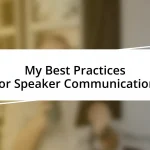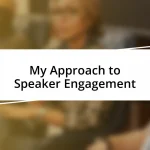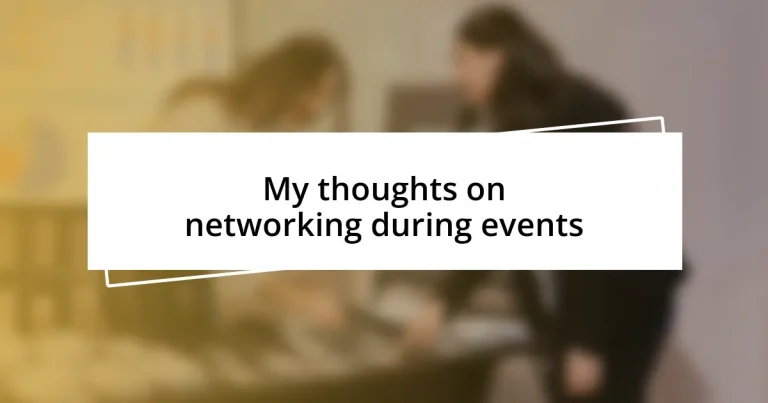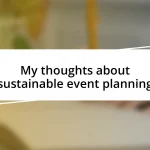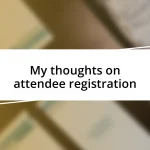Key takeaways:
- Networking is about building genuine relationships, not just exchanging business cards, which can lead to unexpected opportunities and personal growth.
- Preparation is key for networking events: researching attendees, setting clear goals, and having essentials ready can enhance your confidence and effectiveness.
- Effective communication strategies, like active listening and storytelling, foster deeper connections and make interactions more memorable.
- Following up promptly after networking can turn brief encounters into lasting relationships and collaborative opportunities.
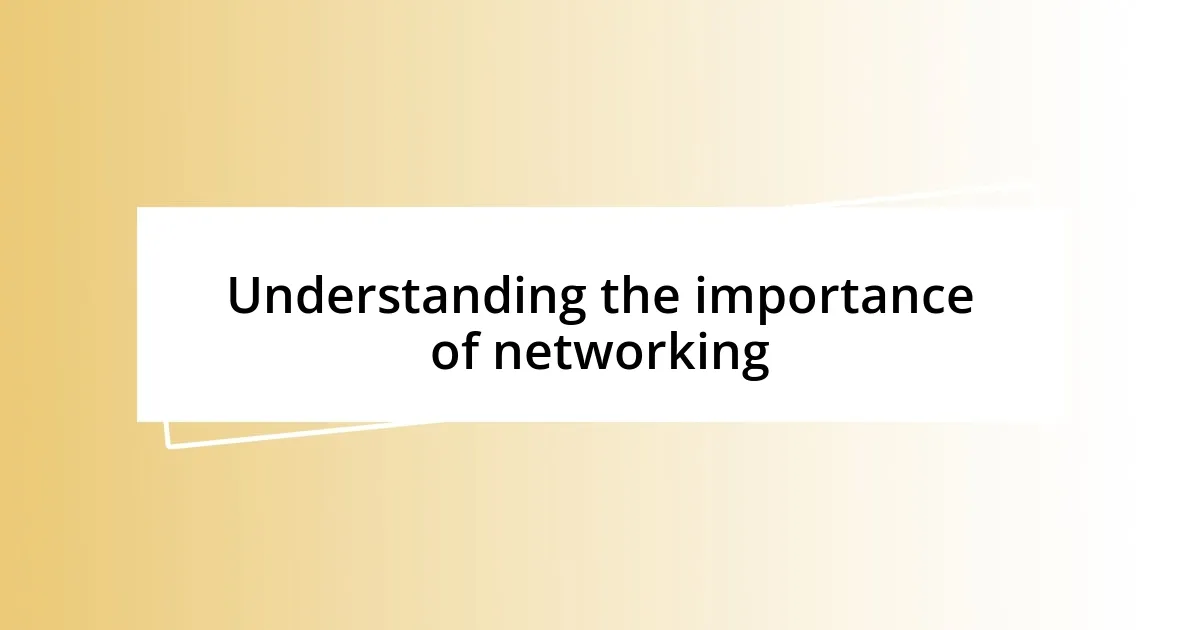
Understanding the importance of networking
Networking isn’t just about exchanging business cards; it’s about building genuine relationships that can lead to unexpected opportunities. I remember attending a small conference years ago, where a casual conversation about our mutual interest in technology turned into a collaborative project. That experience taught me how crucial those seemingly insignificant interactions can be.
Have you ever considered the power of connection? I once met someone at a networking event who later became my mentor. It was through that relationship that I gained insights and advice that reshaped my career. It’s striking how a single conversation can pivot your path and create new avenues for personal and professional growth.
Additionally, the emotional aspect of networking can’t be overlooked. Engaging with others can be invigorating and provide a sense of belonging—think about how good it feels to connect with someone who shares your passion or challenges. This emotional bond often fosters a more supportive environment, creating a network that’s not just transactional but genuinely supportive.
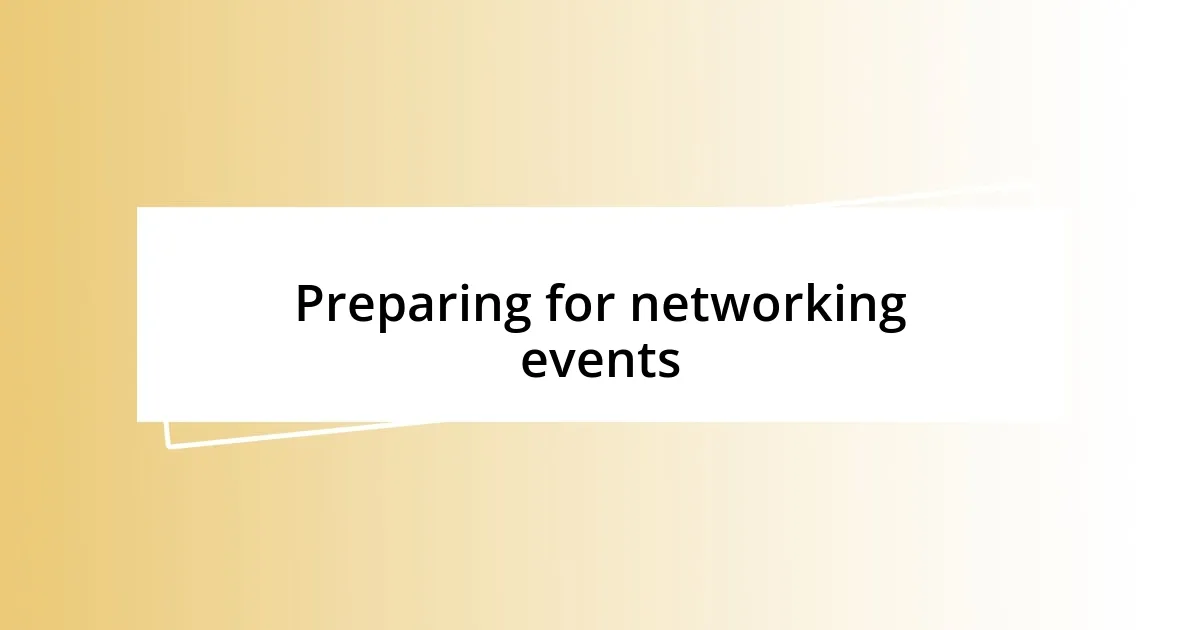
Preparing for networking events
Preparing for networking events requires a little bit of strategy and a lot of personal insight. I often start by researching attendees or speakers to identify whose expertise aligns with my interests. This preparation helps me approach conversations with context and confidence, making it easier to connect over common ground. The feeling of walking into a room knowing you have points of conversation at the ready is truly empowering.
I can’t stress enough the importance of having a clear goal in mind before attending an event. During one of my earlier networking experiences, I went in with no agenda and ended up feeling lost in the crowd. However, after setting specific objectives for myself—like meeting three new people and gaining insights into a particular industry—I found that I was not only more focused but also more relaxed. Suddenly, each interaction felt purposeful.
Equipping yourself with essentials is equally crucial. I make a checklist that includes items like my business cards, an updated LinkedIn profile, and even a small notepad for jotting down interesting ideas and contacts. These simple tools have transformed my networking game. Imagine the confidence of having everything you need at your fingertips!
| Preparation Tips | Personal Approach |
|---|---|
| Research Attendees | Helps identify common interests |
| Set Clear Goals | Creates purposeful interactions |
| Prepare Essentials | Increases confidence and readiness |
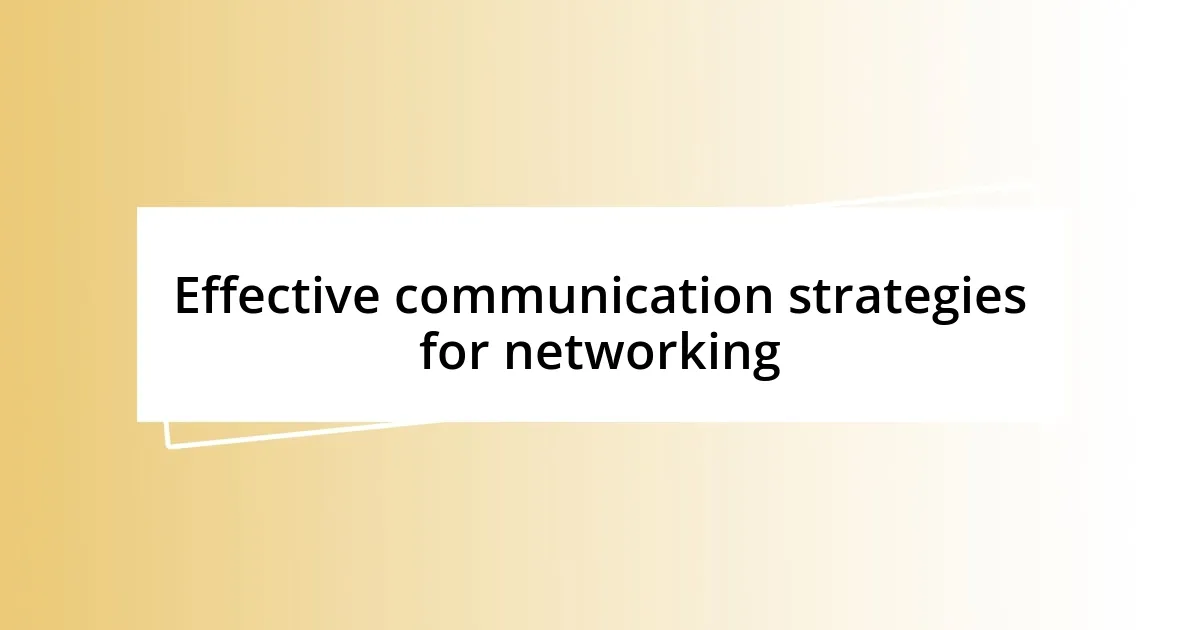
Effective communication strategies for networking
Effective communication is the cornerstone of successful networking. I once observed a fellow attendee who approached others with genuine curiosity. Instead of launching straight into a sales pitch, he took the time to ask open-ended questions, like “What inspired you to be here today?” This simple strategy not only disarmed the person he spoke to but also fostered a more meaningful exchange that lasted long after the event. I’ve since adopted this approach; it’s amazing how people open up when they feel valued.
To enhance your communication during networking, consider these strategies:
– Active Listening: Show genuine interest by listening attentively and responding thoughtfully, creating a two-way conversation.
– Non-Verbal Cues: Maintain eye contact and use appropriate body language to convey trust and engagement.
– Follow-Up: Don’t let those connections fizzle out; send a quick message highlighting something you discussed, reinforcing the relationship.
– Empathy: Approach conversations with an understanding mindset, which fosters trust and relatability.
– Clarity: Be concise and clear about your interests and what you can offer, avoiding lengthy explanations that may lose your audience’s interest.
Another effective strategy for networking revolves around storytelling. People remember stories far better than they do facts or figures. I vividly recall a networking event where I shared a brief, candid story about my first failed project. Far from being a source of embarrassment, it sparked laughter and empathy, leading to deeper conversations with others who had similar experiences. What I’ve learned is that vulnerability can be a powerful tool in establishing connections. It not only humanizes you but also encourages others to open up, creating a richer dialogue.
Whenever you’re in a networking setting, think about how you can weave in storytelling:
– Share personal anecdotes: Relate experiences that illustrate your passion or expertise.
– Use humor: A light-hearted story can break the ice and make you more memorable.
– Tailor your narrative: Adapt your stories to fit the audience, ensuring relevance and engagement.
– Highlight a lesson learned: Sharing insights gained from experiences shows growth and humility, inviting others to share their journeys.
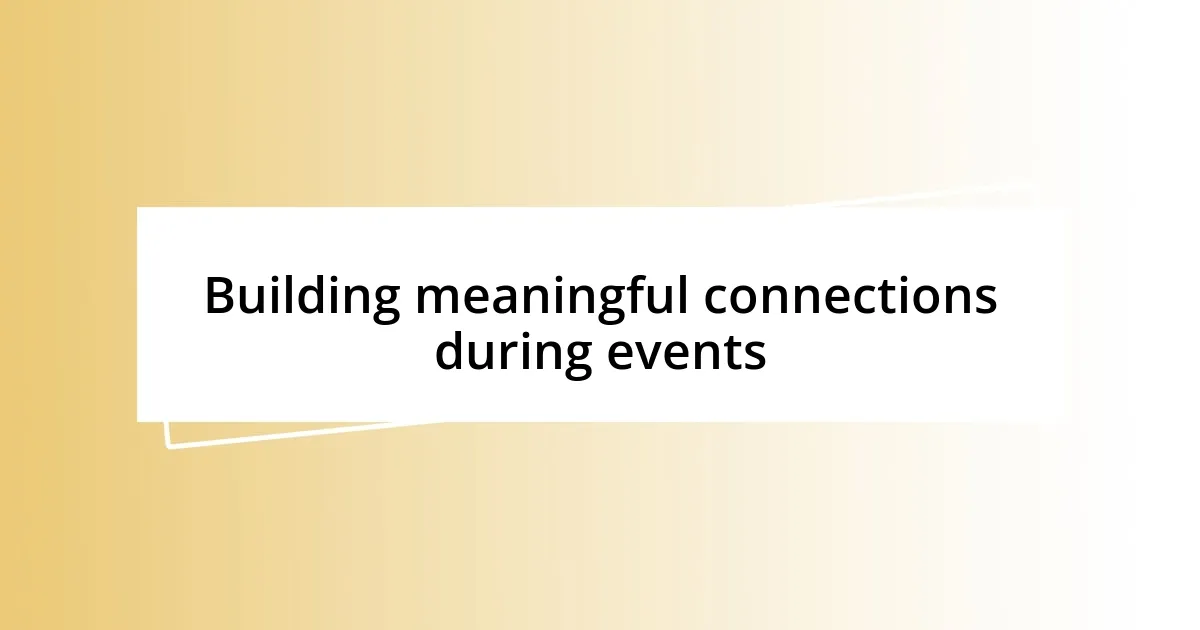
Building meaningful connections during events
One of the most rewarding aspects of networking events is the opportunity to create genuine connections with people. I remember attending a tech conference where, rather than focusing solely on exchanging business cards, I engaged in a heartfelt discussion about the challenges we all face in the industry. That shared vulnerability allowed us to bond over our experiences. Have you ever noticed how a simple, honest conversation can lead to a lasting friendship? Building meaningful relationships often starts with these authentic interactions.
In my experience, being present and attentive during conversations is crucial. I always make it a point to remember small details about the people I meet. It could be something as simple as a mention of a family pet or a favorite hobby. I find it remarkable how a little effort can leave a lasting impression. Have you ever wished someone would remember something about you? When you follow up with a personalized message reflecting a shared interest, it reinforces that connection and opens the door for more discussions.
Don’t underestimate the power of shared experiences during events. After a particularly engaging panel discussion, I gathered with a few other attendees to reflect on what we had just learned. Our discussion not only deepened our understanding of the topic but also forged bonds that extended beyond the event. If you find yourself in a similar situation, consider initiating a conversation about your shared experience. It’s often these moments of collective reflection that lead to the most meaningful connections.
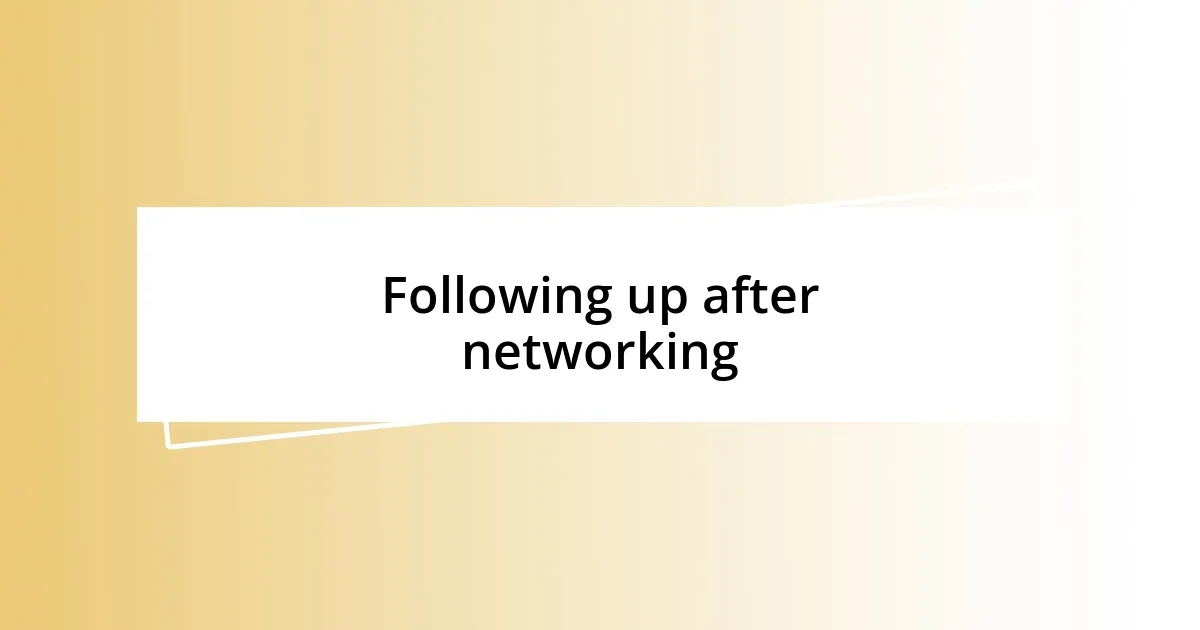
Following up after networking
Following up after making new connections at events is crucial for nurturing those relationships. I remember a time when I met someone who shared my passion for digital marketing. Instead of letting our conversation fade into memory, I sent a follow-up message sharing an article that I thought she’d find interesting. It sparked a new discussion and showed her that I valued our interaction. Isn’t it wonderful how a simple gesture can keep the conversation going?
I’ve also learned the importance of timing in these follow-ups. After attending a workshop, I made it a point to reach out within a day or two. I referenced a specific insight we both found helpful, which not only made my message more personal but also reinforced that shared experience we had. Have you ever found it easier to continue a conversation when there’s something memorable to build on? By reminding them of a specific moment, I turned a brief encounter into a budding collaboration.
Lastly, I’ve found that following up can be more than just messages; it can involve connecting on social media platforms too. Once, after an enlightening panel discussion, I connected with a fellow attendee on LinkedIn and commented on one of their recent posts about industry trends. This not only strengthened our original connection but also positioned me as someone who is engaged and genuinely cares about their thoughts. How have you used social media to reinforce your networking outcomes? It’s a great tool to keep the momentum going.
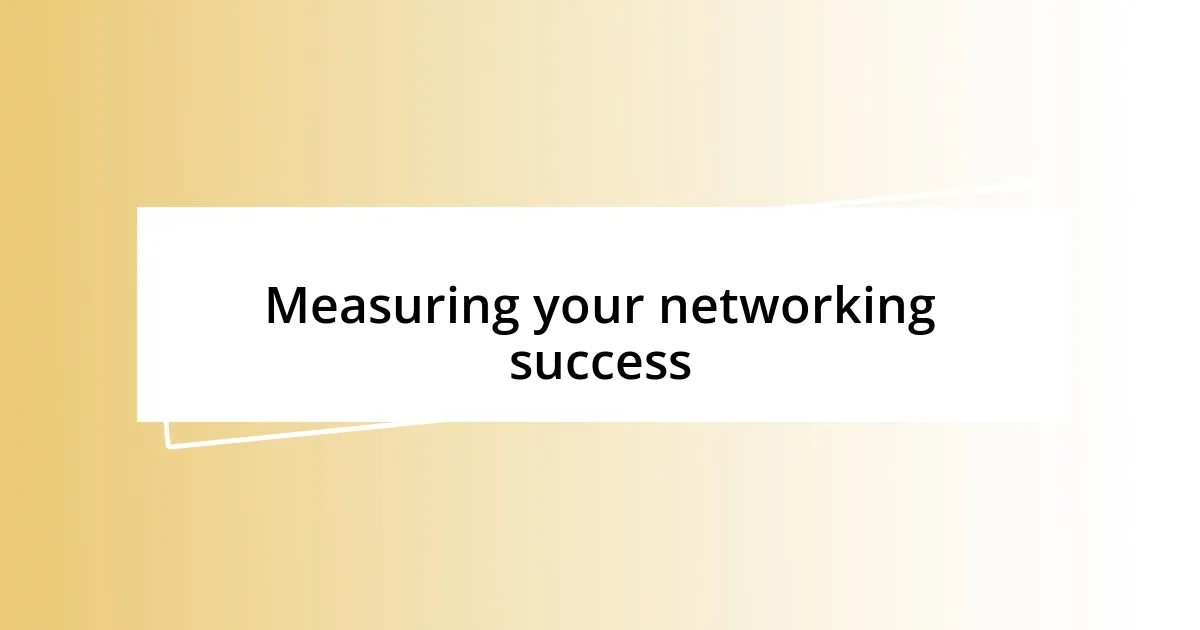
Measuring your networking success
Measuring your networking success isn’t just about the number of business cards you collect; it’s about assessing the quality of connections you’ve made. I recall a particular event where I only interacted with three people, but those conversations led to invitations for collaboration and mentorship. Would you agree that sometimes fewer, deeper connections can be more impactful than many superficial ones?
One effective way I measure my networking success is by tracking the follow-up interactions I have with my new contacts. After a recent seminar, I made a note of everyone I reached out to, and I found that three of them responded positively and engaged with further discussions. Doesn’t it feel rewarding when the effort you put in pays off in the form of meaningful dialogue?
Another personal metric I use involves reflecting on how many initiatives or projects arise from those connections. I recently partnered with someone I met at a networking event, and we co-created a workshop that not only expanded our networks but also provided value to our communities. How do you measure your success? If you can identify tangible outcomes like these, you can confidently gauge the effectiveness of your networking efforts.





